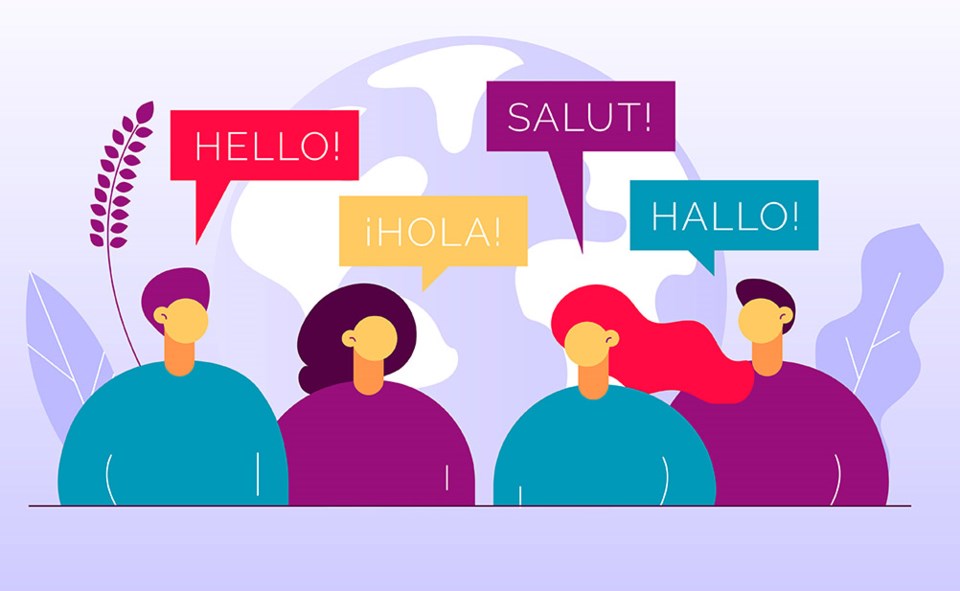The notion that Americans seldom venture beyond their borders, showing little interest in the cultures or languages of their destinations, is a long-held stereotype that may not hold true. In reality, we are becoming increasingly active in global travel and show a growing interest in language learning as part of our travel experiences.
Test Prep Insight commissioned a survey to gauge the prevalence of bilingualism and language learning among Americans. They scouted for the secret Spanish conversationalists, the weekend French aficionados, and the Mandarin masters in the making. The survey of 3,000 people specifically targeted people who said they can speak or understand another language at a basic level.
Notably, they excluded those who speak a non-English language at home, such as Spanish-speaking Mexican Americans, to focus on new language acquisition. And voilà! The results were as tantalizing as an unexpected twist in a telenovela…
It was found that Rhode Islanders stand atop America’s linguistic leaderboard! An impressive 876,488 of these adept conversationalists can exchange pleasantries in a second language as effortlessly as they can discuss the charming attributes of their state.
Hot on their heels, in second place, are the linguistic luchadores of New Mexico. With 1.4 million (or 67%) capable of smoothly slipping into Spanish to ‘pedir una enchilada’ (with fries on the side, por favor).
And in third place came New Jersey - the state's historical embrace of diverse heritages, from the Italian-American communities shaping the cultural fabric of areas like Hoboken and the robust Irish-American presence that turns St. Patrick's Day into a statewide festivity, to the resonant Eastern European voices that pepper the sidewalks of cities like Passaic, all contribute to New Jerseyans' multilingual might.
The survey found that 1,833,210 (21%) Virginians say they can nimbly navigate conversations in more than just English. However, when compared to other states, Virginians are on average less multilingual, as Old Dominion placed in lower half of the table - in 40th position.
At the other end of the linguistic leaderboard, Iowans are bringing up the rear. With a mere 6% (that's about 177,000 people) claiming they can parley with non-English speakers, the state's polyglot population is a bit sparse. Then come the Idahoans, 11% of whom can potentially navigate a chat beyond their mother tongue. Mainers aren’t far ahead, with 13% ready to step out of their linguistic comfort zones.
The Top 5 Multi-Lingual States:
1. Rhode Island
2. New Mexico
3. New Jersey
4. New Hampshire
5. California
The Bottom 5 Multi-Lingual States:
50. Iowa
49. Idaho
48. Maine
47. Delaware
46. Alabama
Interactive map showing the number of second language speakers in each state
Test Prep Insight also unearthed other interesting data about Americans when it comes to second languages and travel:
What surfaced was a certain reluctance to break the linguistic ice while on foreign soil. Indeed, the survey pointed out that a significant slice of globe-trotters, 56% to be exact, carry the expectation that ‘American’ should be the lingua franca when conversing with locals abroad.
For those willing to make the effort to learn a second language, Test Prep Insight asked respondents what their primary reason is for learning a new language. 33% percent said for educational reasons, 26% said for travel, 23% said for personal interest and 18% for business reasons.
With Latin America just a stone's throw away, it's hardly surprising that Spanish tops the charts as the must-learn language for 37% of language enthusiasts. This was followed by:
French: 20%
Japanese: 10%
Italian: 8%
German: 7%
Russian: 6%
Arabic: 5%
Portuguese: 2%
Hindi:1%
When it comes to dating and language, the survey found that a different language could be a barrier to love. 40% of respondents said they would not enter into a relationship with someone if they didn’t speak the same language – understandable perhaps, though the stars of the TV show 90-day fiancé might disagree.
Finally, respondents were asked for their opinion on whether they think learning a new language will become redundant given the advance of AI. Half are ready to welcome AI, believing the need for a second language will become irrelevant. The other half, however, are convinced that no algorithm will ever truly replace the joy of speaking another language.
"As the survey demonstrates, Americans are embracing the global stage not just with passports in hand but with an earnest desire to converse in the tongue of the lands they visit. This enthusiasm for language learning is a testament to our nation’s diversity and curiosity. Beyond the practical benefits, learning another language is a bridge to understanding and connecting with other cultures on a deeper level," says John Ross from Test Prep Insight.



